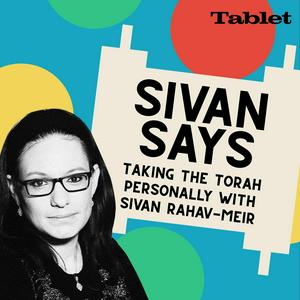This week, we pause the regular Torah reading for Sukkot, the festival of joy, unity, and fragility. Sivan reflects on how entering the Sukkah connects us to generations who found stability in something temporary. The Sukkah mirrors our history: delicate in form but enduring in spirit, a reminder that strength often begins with humility and faith.
Sivan shares a letter from Masha, a listener from California who grew up far from Jewish life. After October 7, she began studying Torah, keeping Shabbat, and reconnecting with her heritage. Her story captures what it means to be an “October 8 Jew,” part of a new wave of Jews rediscovering their roots in the aftermath of tragedy.
As we gather under the Sukkah this year, the question feels especially relevant: what can this fragile shelter teach us about resilience, connection, and joy in uncertain times? Tune in to find out.



